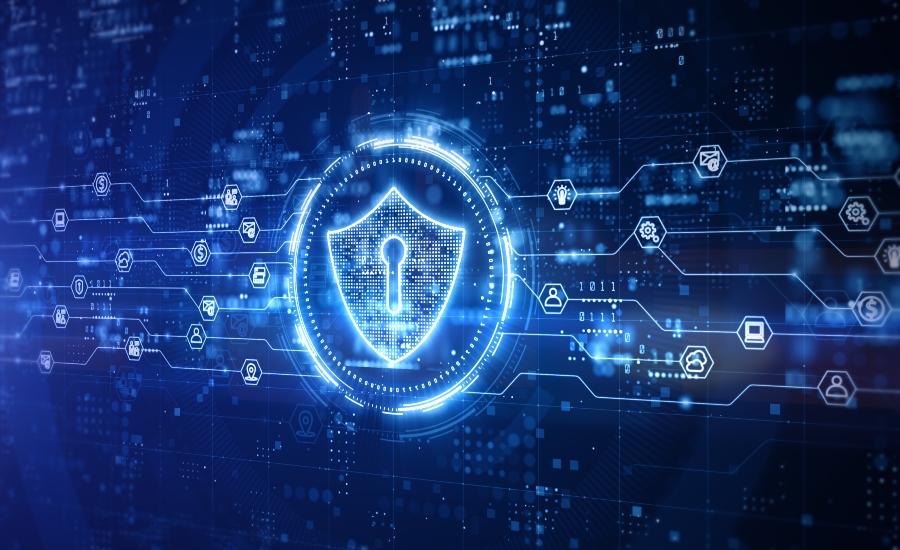The position of AI in cyber safety and how it’s reinventing cyber protection and cybercrime. Artificial intelligence is both a blessing and a curse to agencies, clients, and cybercriminals. AI technology provides us with a speech reputation era (think Siri), Google’s seek engine and Facebook’s facial reputation software. Some credit score card corporations are now using AI to assist financial institutions in saving you billions of dollars in fraud yearly. But what about its cybersecurity programs? Is synthetic intelligence a bonus or dangerous to your organization’s digital safety?
On the one hand, synthetic intelligence in cyber safety is beneficial because it improves how safety specialists analyze, look at, and recognize cybercrime. It complements the cyber protection technologies organizations use to combat cybercriminals and helps hold agencies and clients safe. On the alternative hand, synthetic intelligence may be very aid extensive. It might not be sensible in all packages. More importantly, it also can serve as a new weapon in the arsenal of cybercriminals who use the technology to hone and enhance their cyberattacks. However, artificial intelligence can improve even the best cybersecurity company and enhance everyone’s online security.”
The dialogue about synthetic intelligence in cyber safety is not anything new. In fact, years ago, we were writing approximately how artificial intelligence and system gaining knowledge would trade the destiny of cyber protection. After all, facts are at the center of cyber safety trends. And what better way to investigate facts than to use computers that can suppose and do in nanoseconds duties that would take humans more time? Artificial intelligence is a developing location of hobby and funding in the cyber safety community. We’ll discuss synthetic intelligence protection gear advances and how the technology affects organizations, cyber criminals, and consumers. Let’s hash it out.

How artificial intelligence cyber safety features enhance digital protection
Ideally, like many modern businesses, you’ve got multiple degrees of safety in place — perimeter, community, endpoint, software, and information security measures. For example, you could have hardware or software program firewalls and network security solutions that song and determine which network connections are allowed and block others. Hackers who make it beyond these defenses will be up against your antivirus and anti-malware solutions. Then perhaps they will face your intrusion detection/intrusion prevention solutions (IDS/IPS), etc., and many others.
But what occurs while cybercriminals get beyond these protections? If your cybersecurity depends on the skills of human-primarily based tracking alone, you’re in hassle. After all, cybercrime doesn’t follow a hard and fast agenda —your cybersecurity response talents shouldn’t either. You intend to come across, pick out, and reply to the threats without delay — 24/7/365. Regardless of holidays, non-work hours, or when personnel is in any other case unavailable, your virtual safety answers need to be as much as the venture and capable of reply at once. Artificial intelligence-based cyber security solutions are designed to paint around the clock to shield you. AI can respond in milliseconds to cyberattacks that could take mins, hours, days or maybe months than it would take humans to discover.
What cyber protection executives consider AI
Capgemini Research Institute analyzed the role of cyber protection, and their record “Reinventing Cybersecurity with Artificial Intelligence” suggests that building up cybersecurity defenses with AI is imperative for agencies. This is partly because the survey’s respondents (850 executives from cyber safety, IT security, and IT operations throughout 10 nations) trust that AI-enabled response is important. After all, hackers are already using the era to carry out cyberattacks.
Some of the report’s different key takeaways consist of:
Seventy-five % of surveyed executives say that AI allows their business enterprise to reply quicker to breaches.
Sixty-nine % of agencies assume AI is essential to respond to cyberattacks. Three in 5 firms say that using AI improves the accuracy and performance of cyber analysts. Artificial intelligence can help increase the horizons of current cyber protection answers and pave the way to create new ones. As networks become large and more complex, synthetic intelligence can be a big boon to your organization’s cyber protections. Simply positioned, the growing complexity of networks is beyond what humans can handle on their very own. And that’s okay to be well—known—you oughtn’t to be prideful. But it does depart you with answering a crucial query: What will you do to ensure your organization’s sensitive records and customer data are comfy?
Artificial intelligence in cyber safety: how you could upload AI to your protection
Integrating artificial intelligence generation into your current cybersecurity structures isn’t something that can be executed in a single day. As you’d wager, it takes making plans, schooling, and groundwork preparation to ensure your systems and employees can use it to their benefit. In a piece of writing for Forbes, Allerin CEO, and founder Naveen Joshi stocks that there are many ways that AI structures can combine with existing cyber security capabilities. Some of these features encompass:
Creating more accurate, biometric-based totally login techniques
Detecting threats and malicious sports using predictive analytics
Enhancing getting to know and evaluation thru herbal language processing
Securing conditional authentication and getting admission to
Once you’ve incorporated AI into your cyber protection answers, your cyber safety analysts and other IT security employees need to recognize how to effectively use it. This takes time and schooling. Be positive to now not neglect to make an investment in your employer’s human detail.






